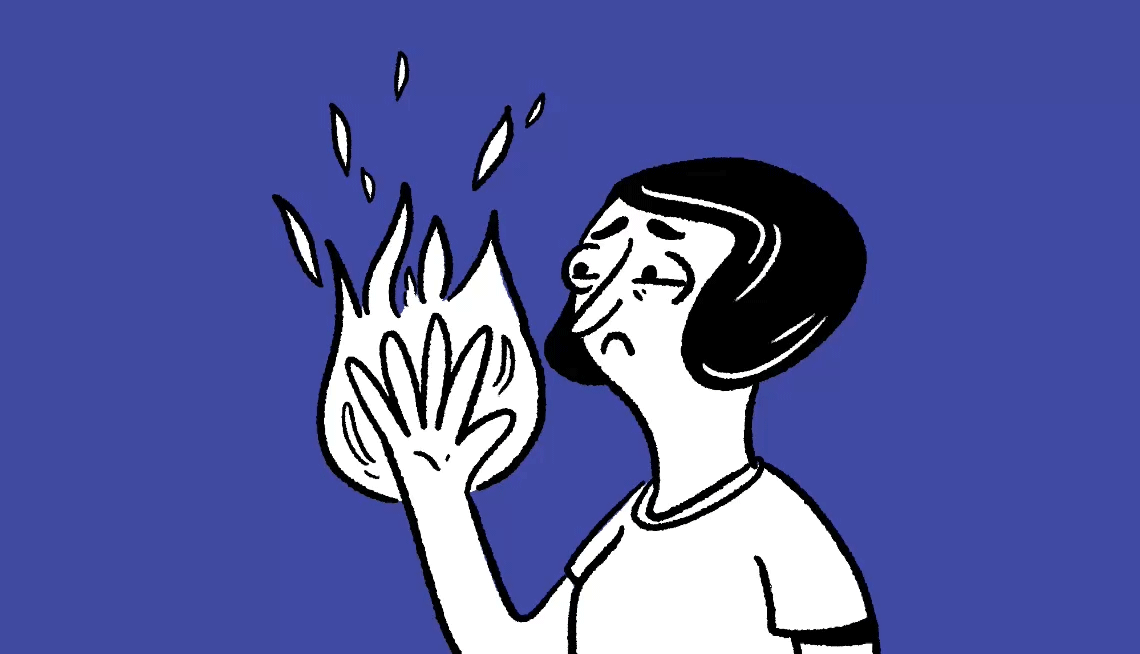AARP Hearing Center


Why do I sometimes get numbness and a fire-like pain in my hands, and how can I stop it?
It sounds like you’re dealing with peripheral neuropathy. This is a condition that affects nerves outside your brain and spinal cord, particularly the ones in your hands or feet. In addition to the numbness and burning pain that you describe, some people with this condition feel sensations like jabbing or throbbing pain, extra sensitivity to touch, a tightness as if they’re wearing snug gloves or socks, and muscle weakness.
More than 20 million people in the United States have some form of this disorder, and our chances of getting it increase as we get older. In fact, peripheral neuropathy is most common in folks in their 70s and 80s. There are several possible causes, the leading one being diabetes. If blood sugar levels aren’t well controlled, nerves get damaged, and this interferes with their ability to properly send messages.
Peripheral neuropathy could also be the result of a vitamin or mineral deficiency, or a symptom of an autoimmune inflammatory disorder such as rheumatoid arthritis, lupus, Guillain-Barré syndrome and Sjögren’s syndrome. Thyroid disease or shingles can also cause peripheral neuropathy, and some people may develop it as a reaction to medication or after an injury.


Ask Dr. Adam
Adam B. Rosenbluth, M.D., is an internist and cardiologist in New York City. Each Monday, he’ll weigh in on your questions about how to make your body work better for you. His AARP book will be published in 2027. Join in on the conversation on social media @dradamrosenbluth to learn to move the needle on your personal health in an achievable way.
Depending on which condition led to your symptoms, neuropathic pain is sometimes reversible. Even if it can’t be cured, there are medications and lifestyle changes to help you cope or prevent it from getting worse. But if you leave peripheral neuropathy untreated, it might lead to weakness.
From a doctor’s point of view, weakness is more serious than pain. For instance, if peripheral neuropathy weakens the connective muscles in your feet, it can lead to foot drop, a condition that causes the foot to drag. Likewise, if the muscles in your hand weaken, it can affect overall function, including the fine motor skills needed to write and to use a cellphone. For that reason, I'd encourage you to see your doctor as soon as possible.




































































You Might Also Like
Are There Risks to Taking Ibuprofen Every Day?
A doctor's advice on what to know if you regularly take NSAIDs for pain
The AARP Smart Guide to Healthy Feet
A physician-reviewed list of the best ways to keep your feet healthy
From Years of Pain to Unlikely Salvation
Find out what solved this painful medical mystery